Have you ever done a search on Google to try and find the agent of a particular celebrity, and you see a bunch of different agencies in the search results? What you are seeing are talent buyers, also called middle agents or buyers agents. This is how to contact celebrities official representatives 🙂 Often times, many people get confused about the difference between a talent buyer, and the official agent of the celebrity. Its important to understand what talent buyers do and how they work, including the advantages and disadvantages. This article will help you with understanding what talent buyers are, and how talent buyers work so that you can make an informed decision about what will benefit your business most.
What is A Talent Buyer? How talent buyers and official agents are different

Working with a middle agency is different from booking artists through an official agent. Artist agents represent particular performers. And their primary job is to get more work for the artist. But talent buyers, on the other hand, act as a go-between for those who are interested in booking an artist and artist representatives. Rather than representing an artist’s interests, they try to connect event planners and concert promoters with performers. And their primary concern is connecting these clients with the right artists for their event and budget.
When you book directly with an official agent for an artist, you are responsible for negotiating the agreement and following up with the agent. But a middle agent can be hired to take care of all of that. They will follow up with the official agent for you to negotiate the price, travel arrangements, and other details of the contracts.
Who benefits from a talent buyer?

A middle agent is not for everyone. There are very specific situations in which a middle agent makes sense for booking shows and events. The two primary types of clients who benefit from working with a middle agency are those who are inexperienced in the booking process, and those who simply prefer to let someone else handle the arrangements.

For someone who is not experienced in the booking process, a middle agent can be an invaluable resource. They have contacts and knowledge that the client likely has not yet acquired. In these instances, the middle agent can work with the talent buyer or promoter to get the right artist for their event. It will be up to the event planner or promoter to let the middle agent know what they are looking for as far as specific acts they want or the types of acts they are interested in. The agent will then work to check availability and make sure the budget works.
More experienced promoters and event planners may also seek out a middle agent, though it is more of the exception than the usual way things are done. The benefit to these clients is that letting a middle agency do the work of finding artists, negotiating deals, and taking care of contracts saves them time. The clients only need to work with one person—the talent buyer—rather than directly handling negotiations. But many experienced event planners and promoters prefer to simply handle these things themselves to avoid paying extra fees.

Some clients, however, like corporate event planners, simply do not have the time to handle bookings, which can require several back and forth conversations with an artist’s official agent before a deal is made. These clients usually have to deal with a lot of other logistics issues for the event outside of just the entertainment. In this case, a middle agency can handle all the follow-up and negotiations with the performer’s agent.
Booking through a middle agency will usually cost a lot more than booking directly with an artist or their agent. Occasionally, talent buyers may be able to get a good deal on a celebrity because they may have a good relationship artist’s management or agent, or they negotiated a good deal. However, oftentimes once you tack on the talent buyers fee, not much savings trickles down to the client. When it comes down to it, the artist’s representatives want to try to bring the most money possible to their own client, so them giving the middle agent a cheaper deal than the artists base rate isn’t very likely. The true benefit to booking through a middle agency is the ability to benefit from the talent buyers expertise on the whole process.
How a talent buyer can help seal the deal

Negotiating a booking contract can be tricky. Artists do not publish their prices, and often the artist agent will wait for you to make an offer. So how do you know what offer to make? That’s where a middle agency can help. The main thing is coming up with a mutually beneficial agreement.
Good talent buyers learn to be skilled negotiators. Aside from networking and gaining contacts, their primary job duty is to negotiate deals between their clients and the artist representatives. So, if a middle agent has been in the business for any amount of time, they will be aware of the ins and outs of the entire process of negotiating price and other arrangements. The middle agent knows exactly what research needs to be carried out in order to come up with an offer that is reasonable for both the client and the artist, or to know if the deal will not be feasible.
In addition to negotiating the artist’s fee, the person booking a performer will also need to pay for the artist’s travel and accommodations. A middle agent should be aware of all these costs, as well as ways to possibly negotiate between the parties in order to reduce the cost of travel and accommodations. That being said, the client will still probably pay more to use a middle agent than by handling negotiations on their own. That is because the talent buyers fee of about 5 to 10 percent (typically 10 percent but it can differ) will be added to the price. The primary benefit is that the client will save time on going back and forth with the official agent to check the artist’s availability, negotiating prices, and negotiating contracts.
Of course, it is entirely possible to come up with an offer yourself and book the artist without a middle agent’s assistance. The primary considerations when coming up with an offer to present to an artist’s agent are: how many tickets will be sold based on previous performance turnout; how many seats are in the venue; and what are all the production costs associated with this venue and event? Find out more about calculating the right price for an offer.
How the payment process works

Paying a talent buyer also works differently from how you would pay an artist’s agent. A talent buyer does not work for the artist. Instead, they will invoice their clients directly. And they typically will require some upfront payment for their work in making the deal. So talent buyers often get what is called a “binder”. That means they receive a deposit payment before submitting the offer in order to bind the agreement between parties. This deposit is usually secured before an official offer is sent to the celebrity’s representative and often covers the agent’s fee or their fee plus the artist’s deposit, if required. This allows the talent buyer to confirm that their client is serious about the deal.
Part of the reason for the upfront payment is to prevent deals from falling through. Because the talent buyer is a go-between and relies on their connections in the industry, letting deals fall through can be extremely bad for their reputation, even if it is not their fault. So they secure payment to make sure the promoter, planner, or talent buyer keeps up their side of the agreement, just in case the client had been talking with other artists’ representatives at the same time. Paying the binder is the client’s way of declaring that they intend to move forward to the next step if their offer is accepted.
However, if you are looking to work with a talent buyer, know that not all of them require a binder for upfront payment.

Also regarding the payment process, note that there are two distinct types of payment contracts you may sign with a middle agent. If you are booking a lower level or regional artist, the contract will most likely be made with the talent buyer, not directly with the artist. This means that a “buy/sell deal” is being made, or the talent buyer is buying the artist’s services to sell to their client because the client does not have a reputation yet but the middle agency has a track record they can leverage. In doing so, the middle agency is exposing themselves and their reputation to risk. The problem with this is that you don’t know what the talent buyers markup is on the deal. I’ve heard of talent buyers adding as much as 25% on top of the artists fee! So its important to be careful when choosing a middle agency to work with, especially one who uses this process.
The other type of contract is one made directly between you and the artist. If you are going through a middle agency in this case, they will act as the buyer’s agent in the negotiations. In this scenario, you will most likely pay the standard 10 percent fee for the middle agent’s services. With this type of deal, you are less likely to get ripped off with the high fees, and are more aware of what is going on in the negotiations.
Knowing good from bad middle agencies

Working with a middle agent can provide many benefits. But it is important to recognize the good middle agencies from those that are trying to scam clients. A good middle agent is concerned about establishing a long-term reputation in the industry, and they will not jeopardize those relationships with shady deals.
However, there are plenty of agents out there who charge outrageously high markup prices for their services. They get away with this because the clients don’t understand booking prices and what fees are associated with them. There are also those “fake” talent buyers who completely scam clients, and take their money and run.
Summary
What you really need to understand is that working with a middle agency can be a good choice depending on your situation. Here is an overview of the pros and cons.
Pros
- *You save time on making booking arrangements.
- *You only have to work with one person.
- *You have someone to assist you with the logistics for the celebrity
Cons
- *You will likely pay more (sometimes alot more) for the booking.
- *You lose some control over negotiations.
- *You may have to pay part of the fee upfront just to begin negotiations.
- *You may not know what the talent buyers markup is.
- *A lot of shady and scam middle agencies.

If you decide to work with a middle agent, make sure you choose one with an established reputation and unbiased referrals. Utilize the information in this article to know what to watch out for.



